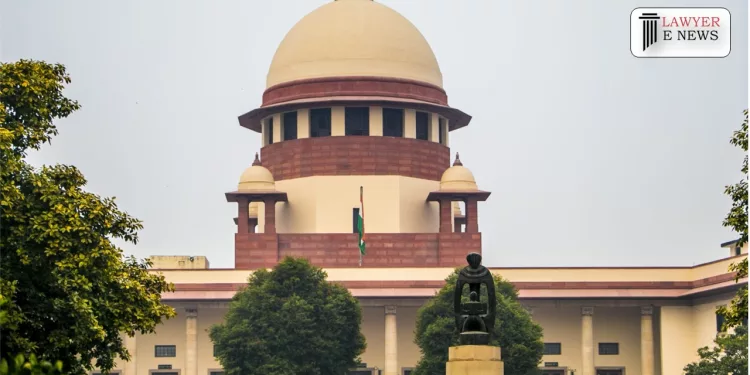Custodian Not Owner of Enemy Property – Not Exempted From State Or Local Taxation: Supreme Court

The Supreme Court of India has delivered a pivotal judgment, clarifying the legal intricacies surrounding the Enemy Property Act and the role of the Custodian. The Court’s decision, comprehensively outlined in paragraphs 14 to 22 of the judgment, delineates the distinct nature of custodianship from ownership and reaffirms the liability of enemy properties to state and local taxation.
Legal Status of the Custodian: In a detailed examination spanning paragraphs 14 to 14.13, the apex court has dissected the legal status of the Custodian of Enemy Property for India under the Act. Contravening widespread assumptions, the Court clarified that the Custodian, as a statutory authority, holds enemy properties not as an owner but as a trustee, responsible solely for their management and administration.
Interpreting the Enemy Property Act: The judgment, particularly in paragraphs 15 to 15.9, provides an insightful interpretation of the Enemy Property Act. The Court emphasized that the vesting of rights, titles, and interests in enemy properties in the Custodian does not equate to a transfer of ownership. The role of the Custodian is fundamentally protective and administrative, distinct from ownership rights.
Understanding ‘Vesting’ in Legal Terms: The Court’s exposition in paragraphs 16 to 16.1 on the concept of ‘vesting’ under the Act is crucial. The judgment clarifies that in this context, vesting implies a role of protection and administration, not the transfer of ownership rights to the Custodian. This interpretation significantly impacts the legal understanding of the powers and limitations of the Custodian.
Constitutional Interpretation – Articles 285 and 289: A significant portion of the judgment, covered in paragraphs 17 to 21, focuses on interpreting Articles 285 and 289 of the Indian Constitution. The Supreme Court underscored that enemy properties, even when vested in the Custodian, do not transform into Union property. Therefore, they are subject to state and local taxation as per these constitutional provisions.
Conclusive Judgment and Implications: The Supreme Court, in its conclusive analysis in paragraph 22, overturned the High Court’s prior exemption of enemy property occupiers from local taxation. It was held that such properties are liable for state and local taxes, with the Custodian, acting as a trustee, responsible for these obligations.
This landmark judgment not only clarifies the legal position of enemy properties in India but also has far-reaching implications for their management and tax obligations. It underscores the nuanced distinction between custodianship and ownership in the realm of enemy property law.
Date of Decision: 22nd February 2024
LUCKNOW NAGAR NIGAM VS CUSTODIAN OF ENEMY PROPERTY FOR INDIA AND ANOTHER






